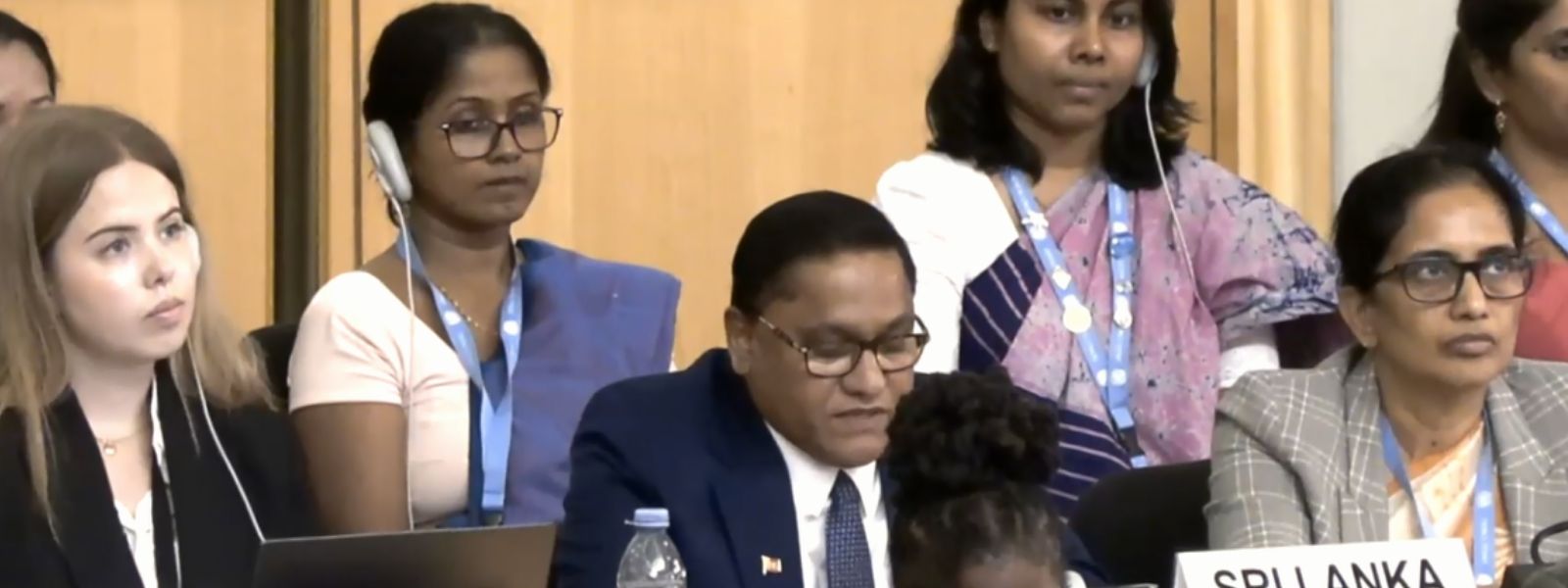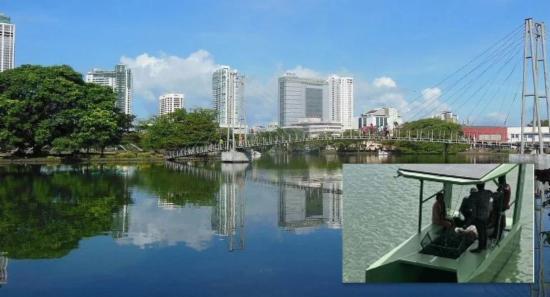.webp)

Sri Lanka to UN: No External Mechanisms, Justice Will Be Homegrown
COLOMBO (News 1st); Sri Lanka has firmly rejected the imposition of external accountability mechanisms, asserting that such measures would undermine national reconciliation efforts.
Addressing the United Nations Human Rights Council, Foreign Minister Vijitha Herath said the government remains committed to advancing justice and human rights through credible domestic processes.
“The government is opposed to any external mechanism imposed on us, such as the Sri Lanka Accountability Project, which serves to create divisions and complicate the national reconciliation process underway in Sri Lanka,” Herath declared. He urged the Council to recognize the progress achieved within a short period, emphasizing that reconciliation must be pursued within the country’s domestic legal framework.
Herath outlined a series of reforms and initiatives aimed at strengthening governance and accountability:
Anti-Corruption Drive: New legislation has enabled independent investigations and prosecutions, resulting in landmark convictions.
Repeal of PTA: The government is in the process of repealing the Prevention of Terrorism Act and introducing new counter-terrorism legislation.
Online Safety Act Amendments: Revisions are being formulated through consultations to address concerns over digital rights and freedom of expression.
Strengthening Reconciliation Mechanisms: Domestic reconciliation bodies have been guaranteed independence and allocated financial and human resources.
Herath also noted that excavations at the Chemmani mass grave site are underway under judicial supervision, reflecting the government’s commitment to truth and justice.
The minister highlighted that people across the country are able to memorialise their loved ones without hindrance, and announced plans to celebrate “Sri Lanka Day” in the first week of December as part of efforts to foster unity and reconciliation.
Responding to criticisms in recent reports, Herath defended the independence of the Attorney General’s office and the judiciary. “The prosecutorial discretion of the Attorney General is not an unfettered power and is subject to judicial review,” he said, adding that recent court decisions demonstrate the judiciary’s autonomy.
He also clarified that references to the amended Personal Data Protection Act in the report were inaccurate, noting that proposed revisions do not relate to exemptions as claimed.
While rejecting external accountability mechanisms, Herath reaffirmed Sri Lanka’s willingness to work with the international community through capacity building and technical assistance in mutually agreed areas. “We are committed to working towards a country that respects and celebrates the diversity of its people,” he said.
Other Articles
Featured News





.png )
-806301_550x300.jpg)





























.gif)